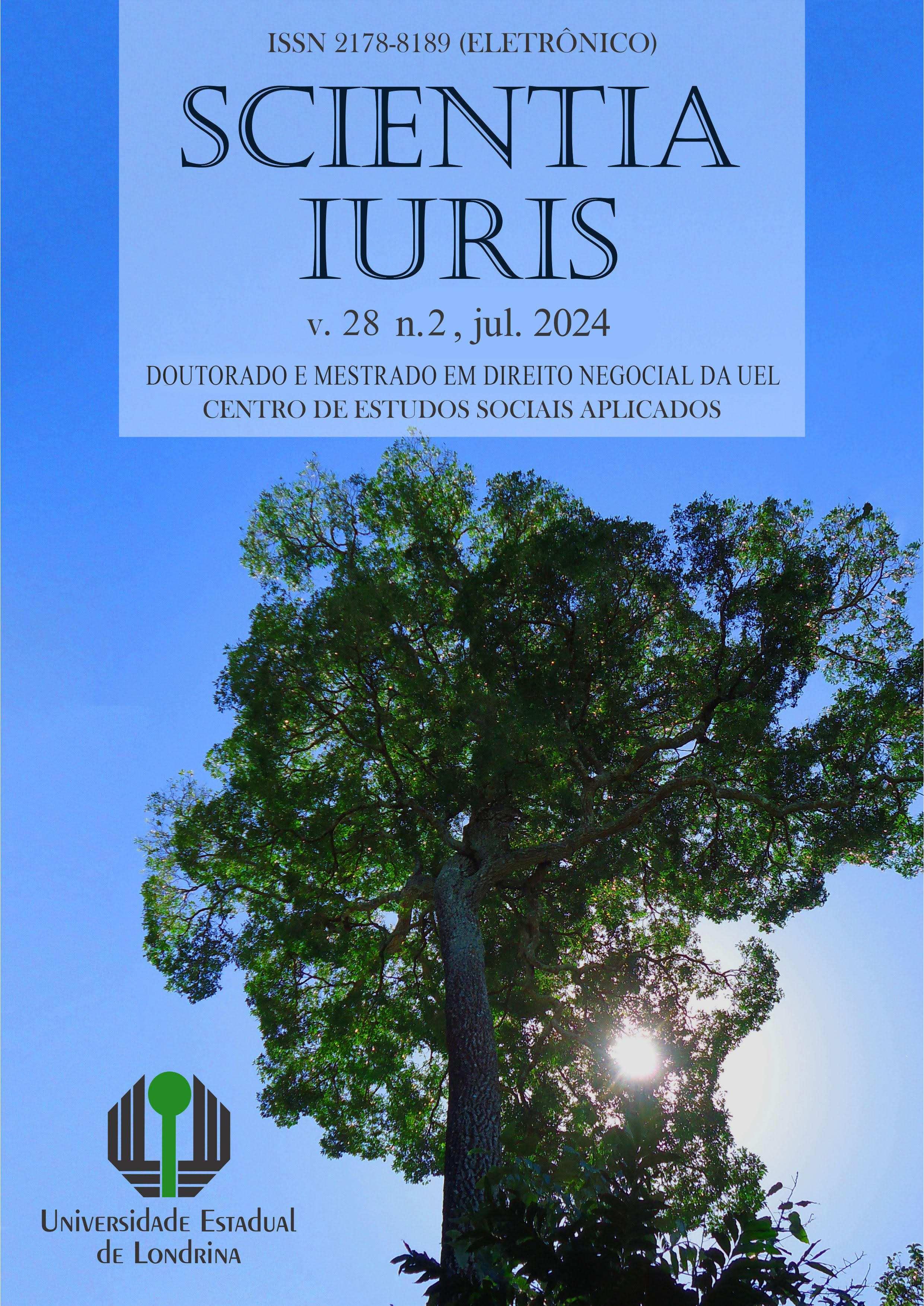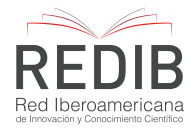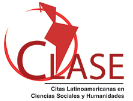Inclusive actions for the LGBTQIAPN+ community, as practices of corporate citizenship in Brazil
Keywords:
Diversity, Corporate Culture, Inclusive Actions, Fundamental Rights, LGBTQIAPN+ CommunityAbstract
This article aims to analyze inclusive practices, inserted in the culture of Brazilian corporate citizenship, aimed at the LGBTQIAPN+ community. In the first topic, the scarcity of diversity and inclusion initiatives is analyzed, as well as the singularities of those that make up, along with equity and equality, the tetrad of inclusive actions. Next, attempts at inclusive actions in the labor market regarding the LGBT community are examined, whether with normative perspectives, with a focus on representativeness, or considering corporate responsibility. And finally, an understanding of corporate citizenship is presented, in addition to the benefits and challenges of diverse and inclusive actions. For this purpose, a qualitative study was carried out, through a bibliographical and documentary review, using books, articles, legislation and reports as sources. It was concluded that such practices do not present any type of legal or social impediment, and should be encouraged, since they work as an aid to companies so that these individuals have their fundamental rights implemented. Any impediment to its evolution goes through a prejudice rooted in society, which still distinguishes and discriminates against people based on their sexual orientation and transgenderism.
Downloads
References
REFERÊNCIAS
ALIANÇA NACIONAL LGBTI+. Advocacy LGBT e Portifolio.2021 Disponível em: <https://aliancalgbti.org.br/portfolio/>. Acesso em: 28/04/2023.
BRASIL. Código Civil (2002). Disponível em: <https://www2.senado.leg.br/bdsf/bitstream/handle/id/506294/codigo_civil_5ed.pdf?sequence=6>. Acesso em 18/04/2023.
______. Consolidação das Leis do Trabalho – CLT. Decreto-Lei 5.452, de 1º de Maio de 1943. Disponível em: <https://www.planalto.gov.br/ccivil_03/decreto-lei/del5452.htm>. Acesso em: 18/04/2023.
______. Constituição da República Federativa do Brasil atualizada. Brasília, 2017. Disponível em: <http://www.stf.jus.br/arquivo/cms/legislacaoConstituicao/anexo/CF.pdf>. Acesso em: 18/04/2023.
______.Decreto 9.571, de 21 de Novembro de 2018.Disponível em: <https://www.planalto.gov.br/ccivil_03/_ato2015-2018/2018/decreto/d9571.htm> Acesso em: 18/04/2023.
______. Lei 9029, de 13 de abril de 1995. Disponível em: <https://www.planalto.gov.br/ccivil_03/leis/l9029.htm>. Acesso em: 18/04/2023.
______. Lei 12288, de 20 de julho de 2010. Disponível em: <https://www.planalto.gov.br/ccivil_03/leis/l9029.htm>. Acesso em: 18/04/2023.
_____. Ministério do Trabalho e Previdência. Portaria nº. 41, de 28 mar. 2007. Disponível em: <https://www.legisweb.com.br/legislacao/?id=200059>. Acesso em 18/04/2023.
CENTRO LATINO-AMERICANO EM SEXUALIDADE E DIREITOS HUMANOS - CLAM. Princípios de Yogyakarta. 2006. Disponível em: <http://www.clam.org.br/uploads/conteudo/principios_de_yogyakarta.pdf>. Acesso em 20/04/2023.
DAMASIO. O Caso da empresa que não contrata pessoas negras – Repercussões Jurídicas, 2021. Disponível em: <https://damasio.vteximg.com.br/arquivos/O%20caso%20da%20empresa%20que%20n%C3%A3o%20contrata%20pessoas%20negras%20-%20repercuss%C3%B5es%20jur%C3%ADdicas.pdf?v=1>. Acesso em 18/04/2023.
DURÃO, Pedro. Empresa & human rigths. Aracaju: DireitoMais, 2020.
DURÃO, Pedro; PINTO, Juliana Araújo. Dilemas Contemporâneos da Empresarialidade: Produtividade dos Negócios e Human Rights Approach na Pandemia, 2020. Disponível em: <https://indexlaw.org/index.php/conpedireview/article/view/7161/pdf>. Acesso em: 25/04/2023
________; SILVA, Deise Cássia de Macedo. Compliance e Direitos Humanos na Empresa: A supranacionalidade no Direito Empresarial, 2020. Disponível em: <https://pedrodurao.com.br/articles/3.pdf>. Acesso em: 20/04/2023.
IMPACT HUB BRASIL. Guia Prático de Diversidade e Inclusão para negócios de impacto, 2021. Disponível em: <https://brasilia.impacthub.net/wp-content/uploads/2021/12/E-book-Guia-pr%C3%A1tico-de-Diversidade-e-Inclus%C3%A3o-para-neg%C3%B3cios-de-impacto-1.pdf >. Acesso em: 16/04/2023
INSTITUTO ETHOS. O Compromisso das Empresas com os Direitos Humanos LGBT – Orientações para o Mundo Empresarial em Ações Voltadas a Lésbicas, Gays, Bissexuais, Travestis e Transexuais, 2013. Disponível em: <https://www.ethos.org.br/wp-content/uploads/2013/12/Manual-LGBT_Dez_2013.pdf>. Acesso em: 16/04/2023.
NOVO, Benigno Núñez. O Brasil e os tratados internacionais. Revista Internacional de Direito Público – RIDP, Belo Horizonte, ano 5, n. 08, p. 21-31, jan./jun. 2020. Disponível em: <https://d335luupugsy2.cloudfront.net/cms/files/1425/1595013556Artigo_O_Brasil_e_os_tratados_internacionais_RIDP_n08.pdf>. Acesso em 20/05/2023
ORGANIZAÇÃO DAS NAÇÕES UNIDAS. Declaração universal dos direitos humanos. 1948. Disponível em: <http://www.ohchr.org/EN/UDHR/Documents/UDHR_Translations/por.pdf >. Acesso em: 15/04/2023.
______. Declaração nº A/63/635, de 22 dez. 2008. Disponível em: <http://www.rio.rj.gov.br/dlstatic/10112/6767039/4186804/DeclaracaoA_63_635ONU.pdf>. Acesso em: 15/04/2023.
______. Resolução17/19. General Assembly, 14 jul. 2011b. Disponível em:
< https://unfe.org/system/unfe-39-sm_direito_internacional.pdf>. Acesso em: 15/04/2023.
______. Nascidos e livres e iguais: orientação sexual e identidade de gênero no regime internacional de direitos humanos, Brasília, DF, de 17 nov. 2013. Disponível em: <http://www.ohchr.org/Documents/Publications/BornFreeAndEqualLowRes_Portuguese.pdf>. Acesso em: 15/04/2023.
_____. Pacto Internacional sobre Direitos Civis e Políticos.1966.Disponível em: <https://www.oas.org/dil/port/1966%20Pacto%20Internacional%20sobre%20Direitos%20Civis%20e%20Pol%C3%ADticos.pdf>. Acesso em: 15/04/2023.
_____. Pacto Internacional sobre os Direitos Econômicos, Sociais e Culturais, 1966. Disponível em: <http://www.unfpa.org.br/Arquivos/pacto_internacional.pdf>. Acesso em: 15/04/2023.
_____. Padrões de Conduta para Empresas - Enfrentando a discriminação contra lésbicas, gays, bissexuais, travestis, pessoas trans e intersexo, 2017. Disponível em: < https://www.unfe.org/wp-content/uploads/2018/04/Padroes-de-conduta-para-empresas.pdf >. Acesso em: 15/04/2023.
______. Religião e cultura não podem justificar discriminação contra pessoas LGBT, diz ONU. 2013.
Disponível em:
<https://brasil.un.org/pt-br/62304-religi%C3%A3o-e-cultura-n%C3%A3o-podem-justificar-discrimina%C3%A7%C3%A3o-contra-pessoas-lgbt-diz-onu> . Acesso em 18/04/2023.
ORGANIZAÇÃO DOS ESTADOS AMERICANOS. Comissão Interamericana de direitos humanos. Declaração americana dos direitos e deveres do homem. 1948. Disponível em: <http://www.cidh.oas.org/basicos/portugues/b.Declaracao_Americana.htm>. Acesso em: 15/04/2023.
______. Convenção americana de direitos humanos. Comissão Interamericana de direitos humanos. 1969. Disponível em:
<http://www.cidh.oas.org/Basicos/Portugues/c.Convencao_Americana.htm>. Acesso em: 15/04/2023.
______. Convenção Interamericana contra o Racismo, a Discriminação Racial e Formas Correlatas de Intolerância. 2013. Disponível em: <https://www.oas.org/en/sla/dil/docs/inter_american_treaties_A-68_Convencao_Interamericana_racismo_POR.pdf>. Acesso em: 15/04/2023.
ORGANIZAÇÃO INTERNACIONAL DO TRABALHO. Convenção n. 111 - Discriminação em Matéria de Emprego e Ocupação.1958.
Disponível em: <https://www.ilo.org/brasilia/convencoes/WCMS_235325/lang--pt/index.htm>. Acesso em: 15/04/2023.
RIO DE JANEIRO. Guia da Diversidade LGBT, saúde, atendimento e legislação. 2019
Disponível em: <http://www.rio.rj.gov.br/dlstatic/10112/9492017/4238301/GuiadaDiversidade.pdf>. Acesso em: 17/04/2023.
RIO GRANDE DO SUL. Ministério Público do Trabalho. ACPCiv 0020688-37.2021.5.04.0025, 2021. Disponível em: <https://www.prt4.mpt.mp.br/images/Ascom/2021/10/27/parecer_ACPCiv_0020688-37.2021.5.04.0025_educafro.pdf>. Acesso em 18/04/2023.
SANCHES, Elizabeth Navas. Diversidade e inclusão: ações que toda empresa deve conhecer para criar equipes multidimensionais.2022 Disponível em: < https://www.pulses.com.br/blog/diversidade-inclusao-nas-empresas/>. Acesso em: 15/04/2023.
SANTOS, Boaventura de Sousa. “Por uma concepção multicultural de direitos humanos”, 2003. Disponível em: <https://direito.mppr.mp.br/arquivos/File/Boaventura.pdf>. Acesso em: 20/04/2023.
SARLET, Ingo Wolfgang. A eficácia dos direitos fundamentais. 11. ed. rev. atual. Porto Alegre: Livraria do Advogado Editora, 2012.
STF. STF enquadra homofobia e transfobia como crimes de racismo ao reconhecer omissão legislativa.2019. Disponível em: < https://portal.stf.jus.br/noticias/verNoticiaDetalhe.asp?idConteudo=414010>. Acesso em: 17/04/2023.
UNAIDS. Promoção dos Direitos Humanos de pessoas LGBT no Mundo do Trabalho. 2a. ed. Brasília, OIT/UNAIDS/PNUD, Projeto “Construindo a igualdade de oportunidades no mundo do trabalho: combatendo a homo-lesbo-transfobia”, 2015. Disponível em: < https://www.ilo.org/wcmsp5/groups/public/---americas/---ro-lima/---ilo-brasilia/documents/publication/wcms_421256.pdf>. Acesso em: 17/05/2023.
Downloads
Published
How to Cite
Issue
Section
License
Copyright (c) 2024 Cícero Pereira da Costa, Tanise Zago Thomasi

This work is licensed under a Creative Commons Attribution 4.0 International License.
The journal reserves the right to modify, in the original text of the submitted article, normative, spelling and grammatical mistakes in order to maintain the cultured standard of language and the credibility of the journal. The journal will respect the authors' writing style. Changes, corrections or suggestions of conceptual order will be sent to the authors, when necessary. In such cases, the articles will be re-examined. The final exams will not be sent to the authors. The published works become the property of the journal, in other words, its total or partial reprinting is subject to the express authorization of the journal. In all subsequent citations, the original source of publication shall be cited and in the case of Photographic Speeches, shall be approved by the original author. The opinions expressed by the authors of the journal’s articles are of their sole responsibility.











